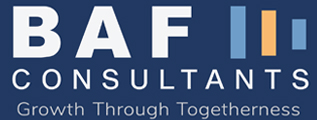Building and sustaining a professional culture for a family business’s growth
Ease of Doing Business for MSMEs: Professional mindset of the senior leadership team or managers means that they must be functional experts who are always looking for new ideas and better ways of accomplishing the tasks. Their emphasis is on making and refining the structures and processes so that dependence on them is the least.

Ease of Doing Business for MSMEs: “A family business is a never-ending journey, one that is continually evolving. Just when you think you’ve got a handle on something, things change, and you have to adapt quickly and efficiently.” This quote by Genette Gregson, CEO of Australia-based trailer supply business All States Trailer Spares, deeply resonated with me as I sat down to write this concluding article in this series.
Change is inevitable in business, in families, in life. Change, by its very nature, brings about new circumstances which generate fear. A client once shared, “I had to quit my job and lifestyle in London to rescue our business and family as my father, the patriarch and business leader had suddenly passed away”. Another shared, “The market for the product we have been manufacturing and selling for the last 100 years suddenly vanished and we only know how to do this business! What will happen to my family?”
In order to thrive out of these unexpected and inevitable challenges, it is imperative to create a conducive environment to deal with them when they arise. Essentially, what needs to remain constant amidst the forever changing times is building and nurturing a professional culture in family businesses. It is difficult to change the existing culture of any business as the family members and professionals become very comfortable in their habits and behaviours. Let us understand how to break the barriers and get started with the professionalisation journey for growth of family businesses.
The starting point for building a professional culture could be the promoters’ and senior leadership team’s commitment to change their existing mindset to a professional mindset.Professional mindset of promoters means they are themselves truly accountable and also hold their managers to account. We have observed that promoters either hold employees at all levels accountable despite hiring the best of professionals or become too dependent on their capable managers and do not hold them to account as they fear losing them. A professional promoter delegates power by establishing clarity in roles and respecting the chain of command.
Professional mindset of the senior leadership team or managers means that they must be functional experts who are always looking for new ideas and better ways of accomplishing the tasks. Their emphasis is on making and refining the structures and processes so that dependence on them is the least.
The next step is co-creation of purpose, core values and code of conduct for aligning the entire workforce towards the company’s vision and goals. Successful family business promoters do this by visiting their history, discovering their deep beliefs and first articulating their aspirations for the company and self. Then they do this exercise with their senior leadership who then conduct it with their teams. They also set up mechanisms for compliance of values such as starting their meetings with sharing of each one’s own instances of compliance and non compliance of values for the first few minutes, biannual rating of adherence to the values of every team member by their boss and subordinates, conducting learning sessions for deepening of values etc.
The third facet in professionalisation of family businesses is the timely transition of leadership from owner and current business leader to his family or non-family successor. Where this leadership transition plan is absent, in the event of the death or disability of the leader, there is a crisis which can lead to serious business disruption and family disharmony.
Owners do realise that transitioning the business is the right thing to do but they find it extremely difficult to let go. Outgoing leaders need to see this as an opportunity to take the business to greater heights and not as the last chapter of their life. This is a painful process and requires patience, hence, taking support of family members, wise friends or professional coaches helps greatly.
This transition is equally challenging for the successor (next generation family member or professional) as they feel pressured to live up to the expectations of the family and to maintain the legacy. Analysing the readiness and competencies of the new leader, whether family or non-family is the first step. Once the leader is chosen, day-to-day operations must be left to them along with planned sessions for grooming them from an operations and strategic point of view.
The real issue is that family businesses underestimate the time and focussed attention required for leadership transition from the outgoing leader to the successor. Deep emotional acceptance, mindset shift and working on an agreed leadership transition plan is required both from the outgoing leaders and their successors.
The next step naturally flowing from the above is transition of power and responsibilities from the business leader and top management to the next generation of leadership. There are three parts of this process – identifying and selecting successors, coaching them and giving them opportunities to start leading.
It is important here to realise that the outgoing leaders do not really retire although it may seem so by virtue of transfer of management control. Rather, they step into the crucial role of being stewards of the family business legacy. This is a challenging role and the best of leaders seek help and prepare well in advance for this role. For effective implementation of the leadership transition plan, practices to build trust, competence, and credibility are required.
To summarise, the four key takeaways in the journey of professionalisation of family businesses are:
- Professional Mindset of Promoters and Senior Leadership Team: Promoters need to become professional by truly empowering their team and respecting the chain of command, senior leadership team/managers must be lifelong learners who ensure good functioning of systems and processes
- Creation and implementation of values and code of conduct by all in the organisation
- Timely planned transition of leadership from owner and current business leader to his family or non-family successor
- Leadership Transition Process involves selection of successors, coaching them, giving them opportunities to start leading and current leaders step into the role of stewards of business
Simran Senani is the Senior Consultant at BAF Consultants. This is the fifth and concluding article in the series ‘Making Family Businesses Succeed’.





